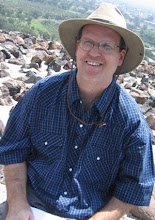Sunday March 9, 2008
8 pm eastern
AFTERMATH - POPULATION ZERO
www.ngcaftermath.com
What Happens when 6.6
Billion People Disappear ???
How would the Earth react
if people suddenly disappeared?
The long-term effects are explored here.
Aftermath: Cities Crumble
Aftermath: Life After People: Day 1 to Day 7
March 3, 2008
Imagine if the human race vanished from existence. What would happen to all we left behind? What would happen to our pets? What would happen to homes that we left standing? What about our electric and nuclear plants - would they keep churning out energy?
Many questions, and few definite answers, but scientists are beginning to explain and explore what would happen if the human race suddenly did not exist. Below are just a number of effects that the earth would experience in the first week of non-human existence.
Without electric fencing to keep them in place, some zoo animals begin to escape their cages. The streets are becoming overrun with animals that are unaccustomed to their new surroundings.
In the United States alone, over 245 million pets (including 88 million cats and 75 million dogs) aren't being fed. These hungry animals are now either foraging in their homes or trying to break out to find other sources of food. Millions of cockroaches will die during the first winter without indoor heating to keep them warm. Squirrels, skunks, and other animals find new dens in newly vacant human homes.
Without people to maintain the system, power grids fail as rolling blackout spread across the United States. Coal-burning power plants go offline as coal deliveries cease. In hydro-electric plants, turbines flood without humans to maintain water levels. Highly automated nuclear power plants detect power-grid failures and automatically shut down their reactors.
The chlorine that oil refineries use to create gasoline is no longer being kept cold. Pressure release valves begin to discharge chlorine, endangering any animals that keep their noses close to the ground. Liquefied natural gas from natural gas depots also starts to escape through vents. What isn't burned by flares will ignite large explosions causing many chemical plants catch fire.
The bright lights from cities had interfered with birds' natural navigational instincts. With the electricity off, these birds fly safely over urban areas.
Aftermath: Life After People: Day 10 to 1 Year
March 4, 2008
Drastic changes to the environment. Animals running wild. Meltdowns and explosions all over the world. This is what life will be like on earth from day ten to one year after humans vanish from existence. Below are some of the changes that could effect earth between day 10 and the first year without the human race.
Cattle Can't Survive - Dairy cows need to be milked every day or their udders will get infected. Without humans to take care of them, many have died.
Nuclear Meltdown - Super-heated steam pours out of nuclear power plants as spent nuclear fuel boils the water in cooling tanks. Buildings buckle under the intense heat. As radioactive fallout spreads, nearby forests are decimated. Pine trees turn red as chlorophyll is damaged.
Radioactive Aftermath - Large animals are fleeing areas where plants have died from radiation. Smaller animals aren't as fortunate. They live on the forest floor where leaves and dirt are coated with radioactive material. Within the next ten years half the rodents and insects in the tainted areas will die. Large forests have become eerily quiet.
Radioactive Recovery - Trees within five miles of the nuclear power plant meltdowns can't regenerate. Further away, rainstorms are washing the radioactive particles into the ground.
Weather Changes - Much of the radiation has fallen out of the skies. Without humans, cities are quiet. The weather is changing, too. With less dust in the air, less rain falls in cities. The cleaner air increases visibility, in some cities from 20 to 100 miles.
Unconventional Clashes - Packs of wild dogs have reached the countryside in search of food. Without easy prey, they're willing to attack just about anything, including escaped elephants.
World Without Polluters - Without cars pumping seven billion tons of carbon dioxide into the air each year, greenhouse pollution begins to abate. New plants and leaves draw carbon from the air, helping to remove human pollution.
- - -
The underground bases are for who again? Without people the elite could start over with a small group of slaves - er ... workers to rebuild.

No comments:
Post a Comment